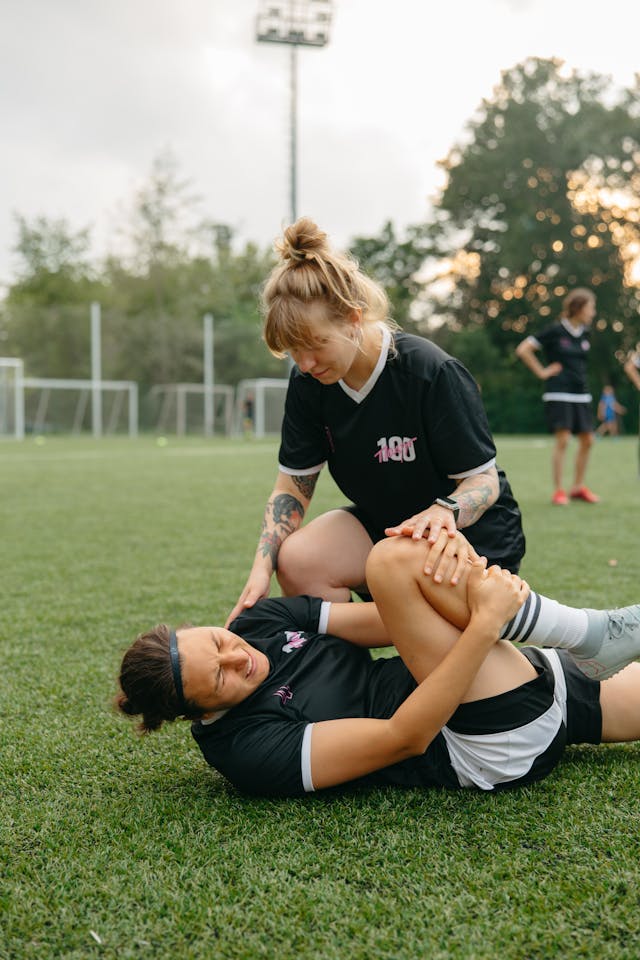Recognizing and Managing Overtraining: A Guide for Athletes

Overtraining is one of the most overlooked barriers to success for athletes and fitness enthusiasts. While pushing your limits is essential for growth, consistently ignoring your body’s need for rest can lead to physical and mental burnout. Recognizing the signs of overtraining and learning how to manage it are crucial for sustainable performance and long-term health.
What is Overtraining?
Overtraining occurs when the intensity, duration, or frequency of your workouts exceeds your body’s ability to recover. This imbalance can cause physical fatigue, mental exhaustion, and a plateau or decline in performance.
While commitment to training is important, rest and recovery are equally vital to your progress.
Signs of Overtraining
Recognizing overtraining early can prevent serious setbacks. Be on the lookout for these symptoms:
Physical Signs:
- Persistent muscle soreness that doesn’t improve with rest.
- Increased frequency of injuries, such as strains or joint pain.
- Trouble sleeping or restless sleep patterns.
- Decreased strength, endurance, or performance.
- Unexplained weight loss or appetite changes.
Mental and Emotional Signs:
- Lack of motivation or enthusiasm for training.
- Increased irritability or mood swings.
- Difficulty concentrating or feeling mentally foggy.
- Elevated stress levels or anxiety.
How to Manage Overtraining
If you recognize the signs of overtraining, don’t ignore them. Taking proactive steps can help you recover faster and prevent future setbacks.
1. Prioritize Rest and Recovery
- Schedule at least one full rest day per week.
- Incorporate active recovery days with light activities like yoga, swimming, or walking.
- Get 7–9 hours of quality sleep each night to allow your body to repair.
2. Adjust Your Training Routine
- Reduce the intensity, volume, or frequency of your workouts.
- Incorporate periodization in your training plan (alternating high and low-intensity phases).
- Listen to your body: If you feel overly fatigued, scale back your workouts.
3. Focus on Nutrition
- Eat a balanced diet rich in protein, carbohydrates, and healthy fats to fuel recovery.
- Stay hydrated before, during, and after training.
- Consider supplementation if advised by a healthcare professional, such as magnesium for muscle recovery or B vitamins for energy production.
4. Manage Stress
- Practice mindfulness or meditation to help reduce mental fatigue.
- Avoid overcommitting to activities outside of training that add to stress.
5. Seek Professional Guidance
- Consult a coach, physical therapist, or healthcare professional for personalized advice.
- Consider working with a trainer to create a balanced workout plan tailored to your goals and needs.
Preventing Overtraining
The best way to manage overtraining is to prevent it in the first place. Follow these tips:
- Plan Recovery Time: Build rest days into your schedule and honor them.
- Cross-Train: Mix up your workouts to avoid overworking the same muscle groups.
- Track Progress: Use a journal or fitness app to monitor performance and recognize when you’re doing too much.
- Set Realistic Goals: Avoid chasing unrealistic targets that lead to excessive training.
Maximize Your Recovery with TRONUS
Recovery is a vital part of any athlete’s success. At TRONUS, we’re here to support your journey with cutting-edge recovery footwear designed to reduce fatigue and promote muscle relaxation.
Explore our collection of TRONUS Recovery Slides and take the first step toward smarter recovery. For more insights and tips, visit our Recovery Resources.
Rest smarter. Train stronger. Stay ahead.





